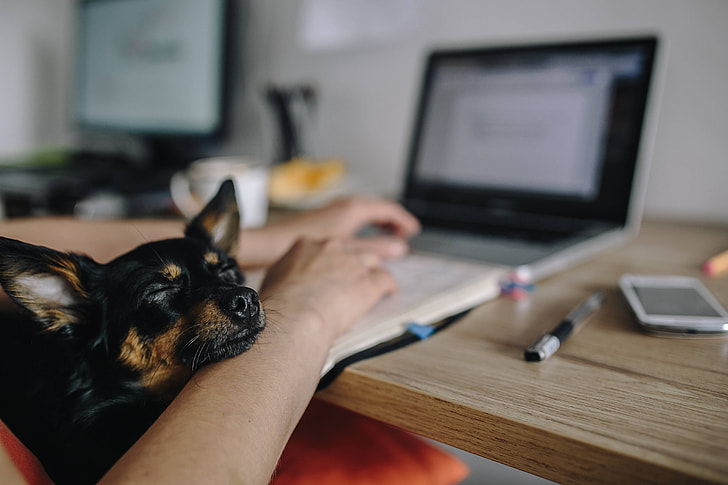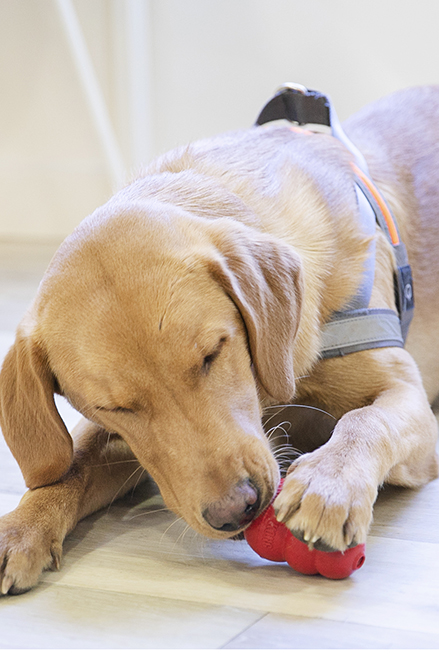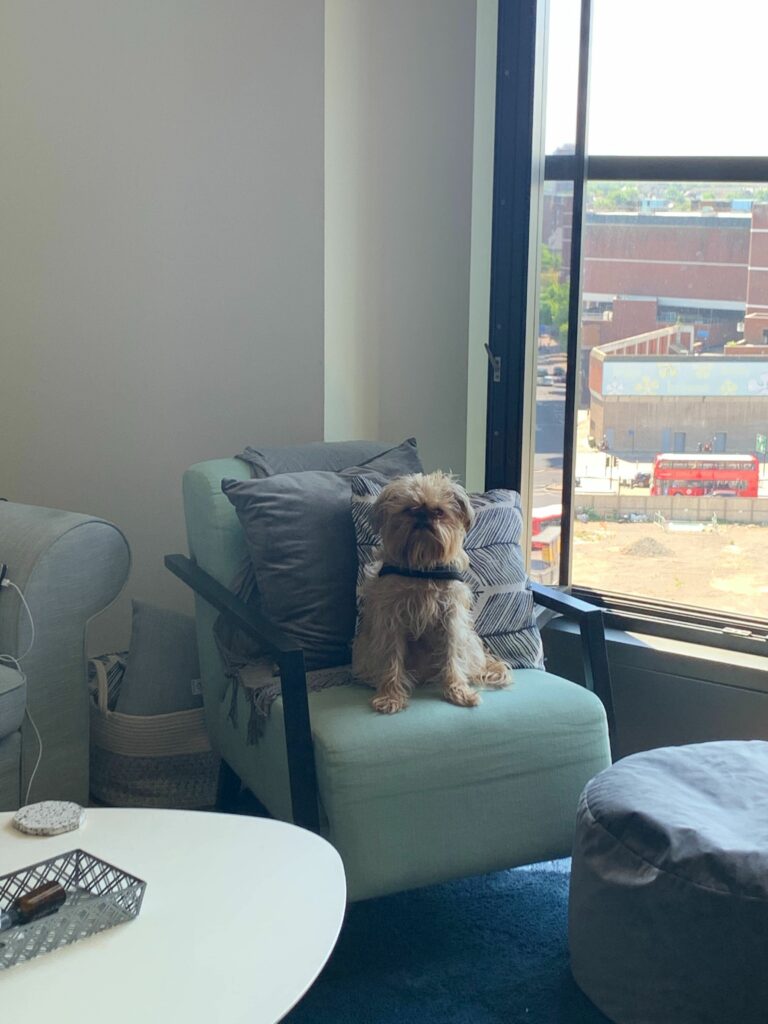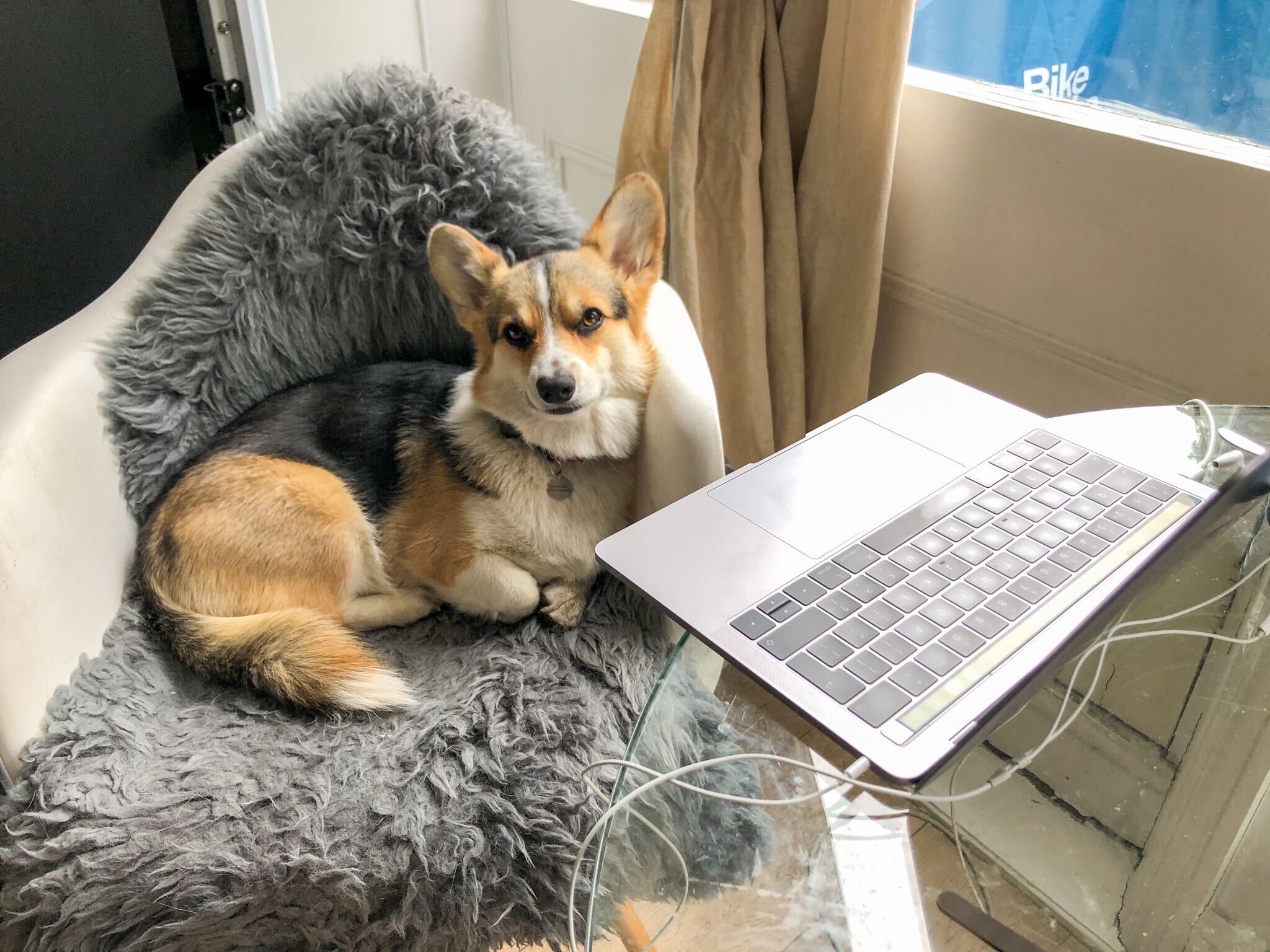While we’ve been stuck indoors, our dogs have got used to spending a few solid weeks with their favourite people. Lucky pups, and lucky humans! Although we’d love to live life with our pooches by our side, at some point the world has to go back to normal. Which means for many dogs, things at home will be different and some pups may struggle to cope. So to make it easier on your dog, there are a few things you can do now to prepare them for their new routine.
Challenges for our dogs after lockdown
Many of our dogs have been living the high life in lockdown. It’s been head scratches and belly rubs galore. Our dogs have become used to all the constant attention and being waited on hand and paw. Who can blame them!

However, with all that extra love and affection, our dogs can form an even closer bond with us humans. Which can be challenging when we have to spend time apart from our beloved pups again. Up and down the country we could see more separation anxiety in dogs. Which unfortunately can leave your dog with anxiety or stress about you being away, and can develop into a range of behavioural issues.
This could be especially true of puppies brought home during lockdown. These adorable bouncy balls of fur have only ever known life with their new family around. When the family goes back to work and they’re left home alone for most of the day, it’ll be a massive shock to their little systems. So puppy separation anxiety could become a challenge for many over the next couple of months.
Signs of anxiety in dogs can include behaviours like excessive barking or whining, toileting in the house even when they’re house trained, destructive behaviours and pacing to name a few. But it doesn’t have to be this way for your dog!
What you can do to prepare your pooch now
Gradual training
We need to get our dogs used to being home alone again. Start by allowing time apart inside the home first. Leave your dog in another part of the house while you’re working or doing chores. Then slowly get your dog used to you leaving the house. Leave for 2 minutes, then 5 minutes then 10 and gradually increase the length of time you’re away. Do this a few times each day and your dog will soon learn to trust that you’re not leaving forever, you will be back!
Keep your dog entertained

Use treat toys to distract your dog while you can’t be together. You could stuff a Kong (or other food toy) with their favourite food or spread peanut butter (xylitol free) onto a lick mat. Give your dog a fun-filled activity to keep them occupied and entertained. That way they’re much less likely to use those gnashers on something they shouldn’t. Like your dining room chair legs maybe!
Introduce a little tough love
Your dog needs to understand that although you love them to pieces, they can’t have your attention all the time. We know it’s tough, but ignore your pup sometimes. Especially if they’re demanding attention – try not to pet your dog or even look in their direction. As any form of attention, even a ‘no’, can be seen as a positive thing by your dog.
Mix up your leaving cues
Dogs are good at learning our exit routines. When you grab your coat or keys, our pups soon realise that means you’re leaving them. To bring that anxiety down, get your dog used to these leaving cues but don’t actually leave the house. You could put on your shoes and sit down for a couple of hours in front of the TV. Soon enough, your dog won’t feel that anxiety when they see those cues.

Start preparing your dog for their new normal now and you’ll have a much happier pooch at home. However, consistency is key and everyone at home will need to be onboard and stick with it. It’s also a good idea to be mindful of how your dog may react outside the home too. There may be other people and dogs they haven’t seen in a while which may make them nervous or fearful. Think about how you’ll manage that so your pooch and others have a positive experience when out and about.
We know every dog is different, and if your dog is still struggling to adjust, a qualified behaviourist is the next best step to teach them how to cope.

